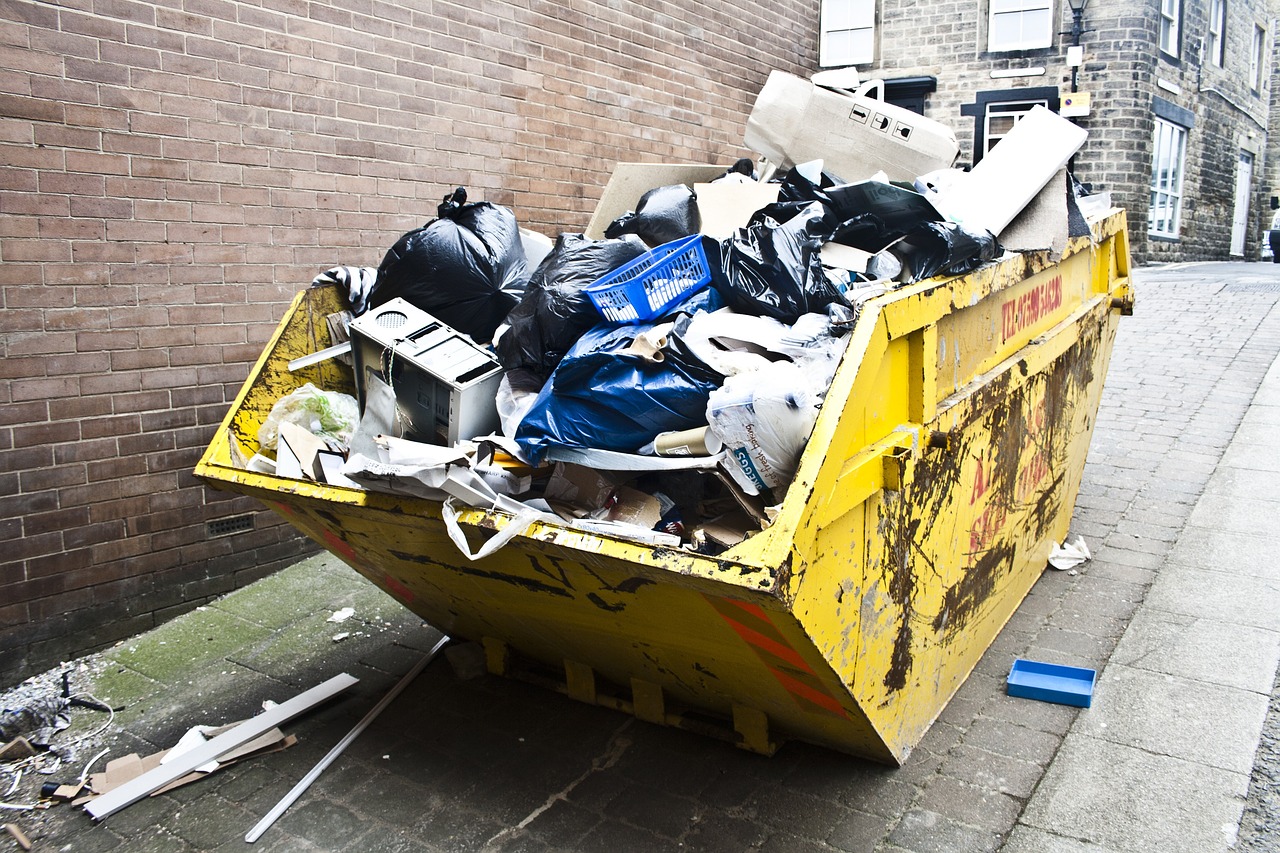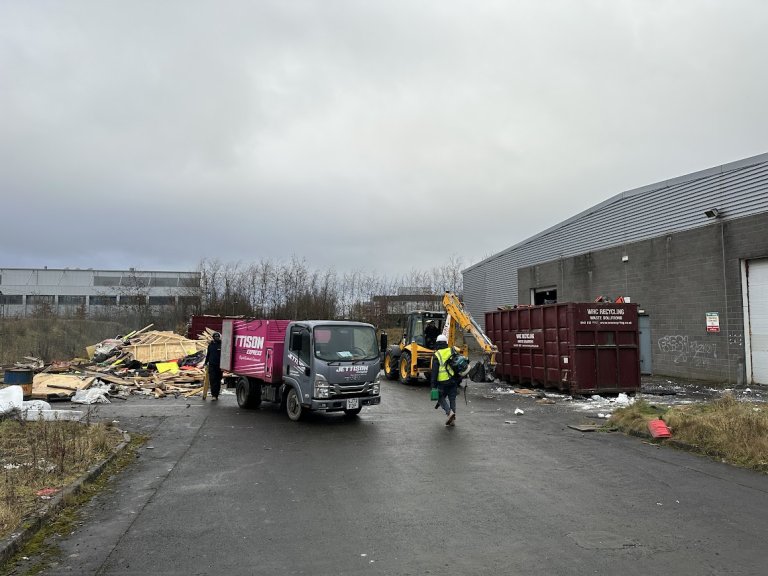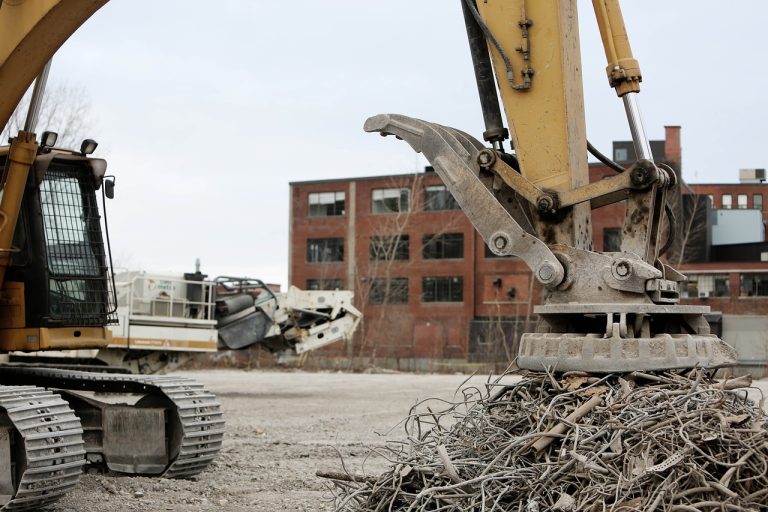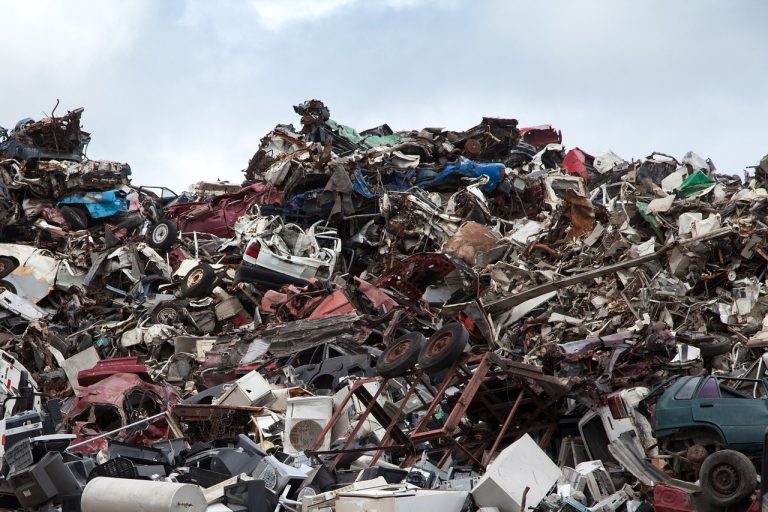What happens to skip waste UK
What Happens to Skip Waste UK
The UK faces a growing problem: skip waste and garden waste. These overflowing containers of discarded materials pose a significant threat to the environment, economy, and society as a whole, including skip companies involved in waste management. Let’s delve deeper into the numbers to understand the true impact of skip waste and recycle as much waste as possible.
Yearly Skip Waste Generation in the UK:
| Category | Amount (in tons) |
|---|---|
| Construction | 5 million |
| Industrial | 3 million |
| Commercial | 2 million |
| Residential | 1 million |
The UK grapples with a significant waste problem: skip waste. Construction and industrial sectors are the primary offenders, often discarding recyclable or reusable materials in skips. This issue has escalated alongside increased building and industrial activity, requiring better management at waste transfer stations.
While authorities have implemented regulations to manage skip waste, challenges remain. Improper sorting and a lack of awareness hinder effective waste management. Finding a sustainable solution is crucial. We need to minimize the negative environmental impact of skip waste, but also ensure continued economic growth and social well-being. In simpler terms, the current state of skip waste in the UK is a complex issue demanding a solution that prioritizes both the environment and society’s needs.
Current Situation of Skip Waste in the UK
The UK faces a pressing challenge: the escalating issue of skip waste. This problem is fueled by a rise in construction and renovation projects, leading to a surge in discarded materials often ending up in skips. Developing effective strategies to manage skip waste is critical.
Improper disposal of skip waste poses a significant threat to the environment. Skip bags frequently end up in landfills or are illegally dumped, causing pollution. Stricter regulations and stronger enforcement are necessary to curb these practices at landfill sites.
Furthermore, a lack of awareness and understanding regarding proper skip waste management exists among both individuals and businesses. Educational initiatives are essential to encourage recycling and minimize environmental damage. Promoting sustainable practices, coupled with providing readily accessible recycling facilities, can play a crucial role in driving positive change.
Collaboration is key. Local authorities, waste management companies, and community organizations must work together to develop innovative solutions. Incentivizing recycling and offering alternative waste collection methods can significantly influence people’s choices and encourage them to adopt more sustainable habits.
Ultimately, individual responsibility is paramount. Understanding the consequences of improper disposal and embracing eco-friendly practices is essential. By working together, we can transform skip waste from a burden into a valuable resource. Through efficient management and collective action by skip companies and other stakeholders, we can preserve our planet’s beauty for future generations.
Waste management practices for skip waste in the UK
Skip waste management in the UK presents a significant challenge, often likened to solving a Rubik’s cube blindfolded. However, by implementing a multi-pronged approach, this issue can be effectively addressed by using skip companies to properly dispose of rubbish.
Sorting and Segregation: The Cornerstone
Effective sorting and segregation of waste within skips is crucial. This allows for the redirection of recyclable and reusable materials away from landfills and landfill sites, ultimately reducing their volume and environmental impact.
Compliance and Responsible Disposal
Regulations mandate the use of registered waste carriers for skip waste transportation. This ensures proper disposal and avoids illegal dumping. Additionally, documentation and tracking systems foster accountability throughout the process.
Embracing Innovation: Waste-to-Energy
Progressive skip hire companies are exploring innovative technologies like waste-to-energy facilities. These facilities convert waste into renewable energy, contributing to a more sustainable future.
Collaboration is Key
Effective skip waste management requires collaboration between various stakeholders. Open communication, sharing best practices, and creating efficient collection systems involving skip hire companies, local authorities, and recycling centers are essential for success.
The Role of Legislation
Legislation plays a vital role by enforcing legal requirements and imposing penalties for non-compliance. This ensures responsible disposal and discourages environmentally harmful practices.
A Historical Perspective: Evolution of Waste Management
Skip waste management practices have undergone significant evolution over several decades. Stricter regulations have been implemented to promote sustainable approaches like recycling and reduce reliance on landfills.
Continuous Improvement: Ongoing Efforts
Both governmental and private entities are actively working to improve waste management practices. These efforts ensure a cleaner environment and contribute to a more sustainable future.
Challenges and Opportunities in Managing Skip Waste
Managing skip waste is both tricky and advantageous. It includes managing all kinds of waste materials found in skips, and discovering new ways to repurpose them. It needs a thorough plan and execution to tackle environmental issues and optimize resource use.Let’s look at the challenges and opportunities of managing skip waste, including garden waste and scrap metal:
| Challenge | Opportunity |
|---|---|
| Scarce landfill space | Recycle and reuse materials |
| Rising costs of waste disposal | Low-cost waste management techniques |
| Ensuring proper segregation of waste | Create effective sorting methods |
| Reducing environmental effect | Execute sustainable practices to recycle as much waste as possible |
A special element is the need to separate waste properly, as different waste needs its own handling process. This guarantees that recyclable items are not polluted and can be reused or repurposed. Additionally, handling skip waste provides a chance to invest in new sorting tech, which increases efficiency and decreases manual labor.
Also, skip waste is a large part of total solid waste produced in the UK. According to the Environment Agency, skip hire activities make up a large portion of construction and demolition waste, which shows the value of effective management plans.
The UK government has initiatives and policies to address skip waste…because sometimes politicians need to prompt us to get our trash in order. Government initiatives and policies to tackle skip waste in the UK
In the UK, the government has taken action to tackle skip waste. They have laid down rules for waste management companies, incentivized recycling, and raised awareness.
Stricter regulations for waste companies mean that recyclables and non-recyclables must be separated. This helps reduce the amount of waste sent to landfills.
Businesses that recycle skip waste are given financial rewards by the government. This helps conserve resources and reduce the carbon footprint by minimizing the waste sent to landfill sites.
Furthermore, the government has worked with local authorities and waste companies to make people aware of the impact of skip waste on the environment. Training and educational campaigns have been launched to spread knowledge on proper disposal practices and encourage responsible behavior in managing garden waste and scrap metal.
In conclusion, the UK government is taking steps to improve waste management when it comes to skip waste. Stricter regulations, incentives, and awareness campaigns are all part of the plan to reduce landfill usage and establish a more sustainable approach to skip waste disposal. Waste Watch, an environmental charity, reports a significant decrease in skip waste being sent to landfills. Best practices and case studies in skip waste management in the UK
Skip waste management in the UK means implementing the best strategies and studying case studies. This helps with proper disposal and recycling, reducing environmental damage. Here are some great practices and case studies from the UK:
| Practice/Case Study | Description |
|---|---|
| Skip Rental Solutions | A firm offering skip rental services that focus on efficient collection and recycling processes. |
| Community Recycling | Local community initiative that teaches skip waste recycling through education and awareness. |
| Waste Segregation | Industrial facility with a comprehensive waste segregation system for efficient recycling. |
Innovative solutions like skip-to-energy conversion have also been successful, contributing to sustainable waste management.
One success story is skip companies improving their waste disposal methods. Green Waste Management, which changed the skip waste industry with advanced sorting technologies. Their processing plants had impressive landfill diversion rates, setting a benchmark for others.
Continuing to explore best practices and learning from successful case studies will help the UK improve skip waste management strategies and create a greener future. Future outlook and trends in skip waste management
Exploring the future of skip waste management is crucial. This means understanding the industry’s direction and identifying key shifts and practices.
Here are some trends and developments that shape skip waste management:
| Trends | Outlook | Management |
|---|---|---|
| Waste Reduction | Focus on minimizing waste through recycling, reusing, and composting. | Implement strategies to reduce waste generation, promote recycling and use of sustainable materials. |
| Technological Advancements | Adopt advanced technologies to streamline skip waste management processes. | Use digital solutions for efficient scheduling and tracking of skips, optimizing routes, and improving operational efficiency for skip companies. |
| Move towards automated procedures like sorting and segregating recyclables. | Have efficient skip collection through automated sorting systems that separate different materials. |
Regulatory compliance, changing consumer behavior, and public awareness campaigns are also important for skip waste management. It’s important to stay updated with relevant regulations.
For example, a skip waste management company in the UK invested in advanced sorting technology. This improved resource management and reduced waste going to landfill by 50%. It was good for the environment and the company’s reputation.
Skip waste management has a bright future, with an emphasis on sustainability, technological advancements, and responsible waste disposal, which includes better use of waste transfer stations. By embracing these trends and driving innovation, we can create a cleaner and greener future.







